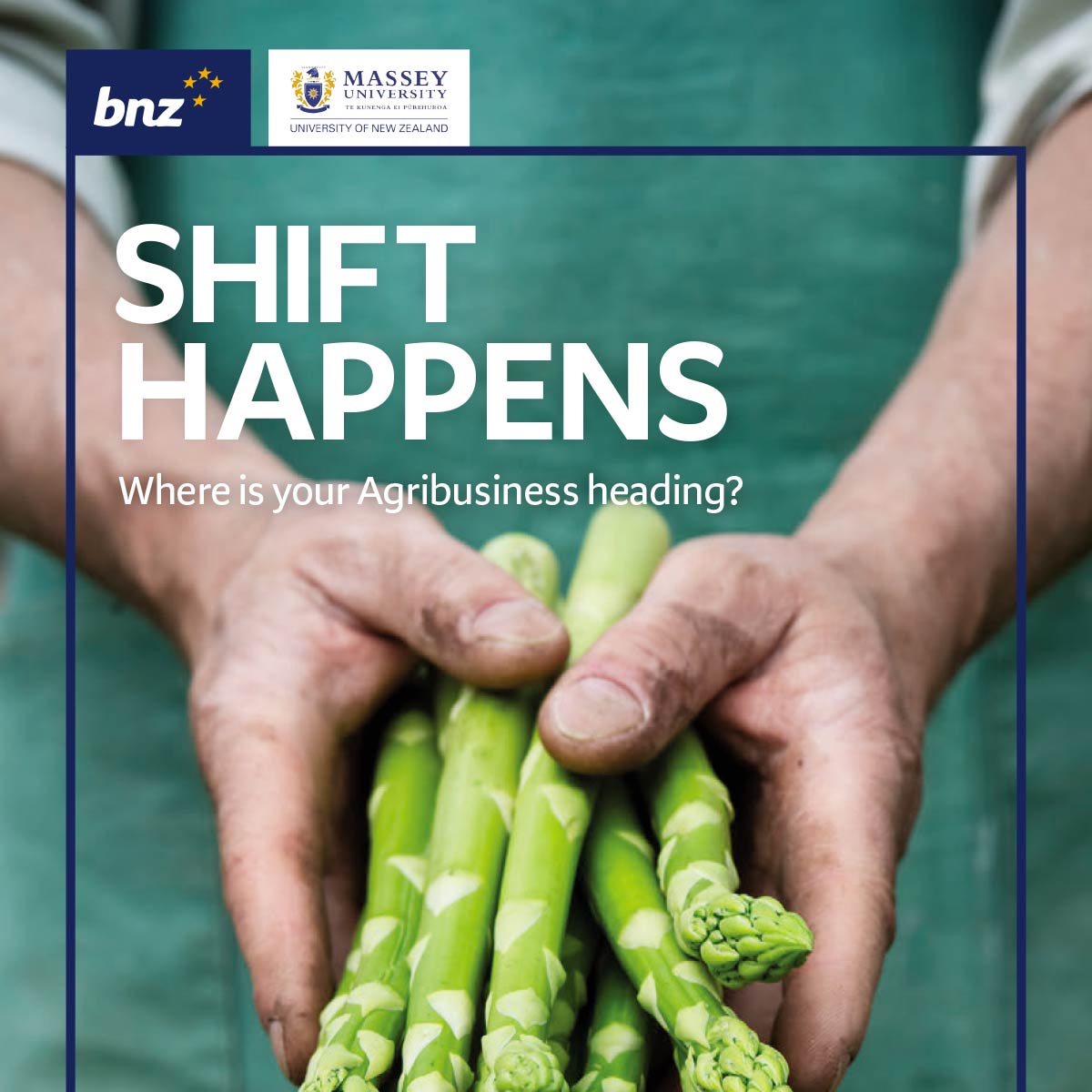Shift Happens, July 2020

The Future of Agribusiness Report – BNZ & Massey University
By Greg Blackwood
Q + A

Richard and Suze Redmayne farm at Turakina, near Whanganui, and established Coastal Lamb in 2010. They now have 17 coastal farmers from the North Island supplying the brand, over 80,000 lambs being processed per year and supply to consumers dining in their homes and at leading Michelin Star restaurants around the world.
We asked Richard what motivates him and what has defined success for the Coastal Lamb business?
Richard says, “Originally, our motivation for the business came from wanting to be closer to our customers – private households and restaurants, rather than just selling lambs from the farm to the processor.”
He says the biggest change has been the ability to personalise the brand. “As soon as we branded our product, and put our farmers’ names behind the brand, there was a quantum shift, from anonymously producing food, to farming families connecting directly with their end customer. Being open and sharing our story creates trust.
Success for us is the feedback from our customers about how much they enjoyed our lamb, and the experience all the way to their plate; a photo of how they cooked it or seeing the excitement the chefs have when working with our lamb. Prior to starting Coastal Lamb, success was the weight of our lambs as they left the property.”
Recently, they ran the ‘Coastal Lamb Challenge’ asking chefs to create a unique dish pairing Coastal Lamb with an element of New Zealand seafood. “The competition culminated in the winning International Chef, Johan Ducroquet from Hong Kong, travelling to New Zealand and staying with several of our farming families and then hosting a dinner at Palate in Hamilton with the New Zealand winner Mat McLean. At the dinner we had 60 of our farmers, chefs and food critics – it was a fantastic night that captured the whole spirit of Coastal Lamb.” When it comes to success, customer satisfaction is the key factor for Richard.
Richard also talked us through the marketplace for Coastal Lamb, how it has evolved overtime, and how they have managed to maintain the provenance story.
Richard says they are conscious that they should have diversity in their markets. “Originally the brand was established within the New Zealand market. As we grew our credentials, we began to get interest from offshore.” Richard says the business now supplies to consumers in New Zealand, USA, Europe and Asia. While it was demand for their products which led to expanding their markets, it has taken time to establish strong, mutual relationships.
Richard explains “Once we gained a new customer, we would go straight to their market to meet our new partner in person, share the Coastal Lamb story, and spend time with their teams, helping them get to know the couple, and the brand, so they can represent the Coastal Lamb brand effectively. “We want not only the end customer to be satisfied and happy, but also the chefs, and our distributors”.
They offer a membership to the Coastal Club, where members get regular updates on how the brand works, the values, families and animals behind it and hear from leading chefs working with their product to get a real understanding of the culinary experience of eating lamb naturally seasoned by the sea. “It’s all about sensational taste with an interesting story”, Richard says. The coastal origin of the product is the key point of difference. Around the world, the flavours of lamb grazed on lightly salted pastures is something top chefs understand – naturally seasoned by the sea.”
BNZ Director of Agri Value Chain, Nick Hawken, knows the Redmaynes well from his time working with the group. We asked Nick to talk us through the qualities of the Coastal Lamb business that he believes have helped them succeed:
Nick works with customers who are focused on creating their own value chain, through producing, processing and creation of brands to bring their own products to market. Working across a range of businesses has given him insights into how businesses like Coastal Lamb succeed.
“In order to create more value you have to be able to identify the key attributes of your product that are unique and align these with your target market. Richard and Suze identified that the coastal origin of their lamb provided a unique taste and established a supply chain around them, which supported all the values they adopted growing their lambs. They not only produce fine cuts of lamb but are creating a quality experience.”
Nick says in his dealings with the Redmaynes they talk a lot about the importance of quality relationships. “We’ve watched them create a supply chain that provides exceptional customer satisfaction because their values are embedded into the Coastal Lamb brand. The end result? They create greater value both for the customers and producers because they wanted to be more connected with their end consumer.”